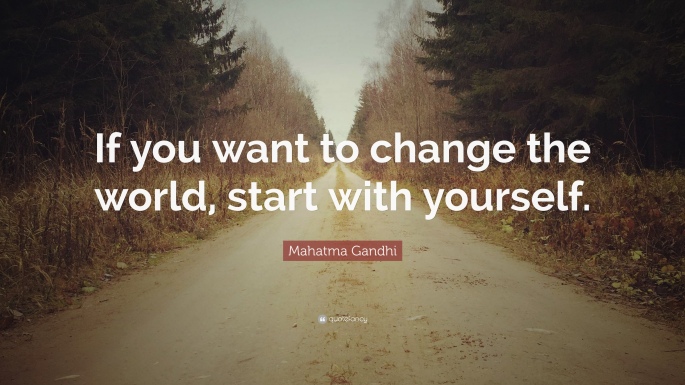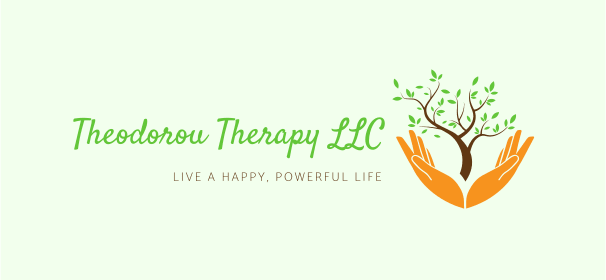
Have you ever found yourself growing frustrated because “that person just won’t listen to my advice,” or because “don’t they seem to recognize how they are hurting themselves by acting like that,” or because “I can’t believe someone could be so irresponsible.”
I know I am guilty of this from time to time.
These are coming refrains we say to ourselves when we are in the midst of taking on other people’s problems. Maybe we feel compelled to solve the problem for our loved ones. We can’t stand to watch them make a mess of themselves or their lives.
Yet we have no choice BUT to let other people live their lives. However they see fit. Without us making choices for them. Or telling them what we THINK is the right choice. The bottom line is we cannot make ANYONE do anything they do not want to do.
We all, at least on an intellectual level, know that we do not have control over ANYONE but ourselves. Yet on an emotional level it can be hard to accept. One of those truisms of life I think we all struggle with from time to time.
As friends, family members, romantic partners…we can support, listen, encourage, ASK if someone wants our advice or help (but with the acceptance they may in fact NOT want our advice or help). It is then our job to respect the response we get regardless of it is the one we hoped for.
When we offer unsolicited advice, we alienate and annoy those around us. We also in turn frustrate ourselves when said advice is not taken.
The world is a tough place and you are not doing anyone any favors by solving their problems for them. We can’t live other people’s lives FOR them. This can be especially hard to accept as a parent.

How do you KNOW if you might be taking on someone else’s problems?
-You think about them AND their problems all the time.
-You talk about the problem. ALOT.
-You surrounded yourself with needy people.
-You feel you listen to everybody but NOBODY listens to you.
-You feel a strong sense of obligation to help others even when they don’t ask.
-You ignore your own problems because it is less painful to focus on OTHER people’s problems.
-You feel unhappy even though on paper nothing is wrong with your life.
-You feel the need to be validated by others.
-You find yourself experiencing a simmering resentment.
-You have been referred to as a peacemaker, helper, or fixer.
These are just a few signs you may be struggling with taking on other people’s problem.
How to be supportive without taking on another person’s problem is a fine line to walk.
Sometimes our desire to help, fix, or be the hero clouds our judgment.
Even when we KNOW what someone we care about is doing is unhealthy, self-destructive, bad, wrong, insert value judgement here, the challenge for us is respecting when they are not opening to hearing it or doing anything about it. If we cannot offer that respect, all we do is cause misery. For them AND ourselves.
People are free to mess up their own lives without us swooping in to save them. Trying to solve other people’s problems usually makes it worse, not better. Often we inadvertently create a whole other host of problems in the process.
Problems can only be solved firsthand.
You may be thinking, “isn’t it your job as a counselor to help people with their problems?” and the answer is yes, of course. To help them. Not to do it for them. The reality is if someone doesn’t want to do anything about the issue, there is nothing anyone can do to change them. Unless they want to change. As soon as you or I or any of us think it’s our responsibility to “fix” another person, we are in trouble.
My role as a counselor is to facilitate the process–but it is a client’s journey, just as anyone’s journey, is their own.
Does it ever drive me crazy? Absolutely.
Ultimately, I believe everyone has a right to lead their own life as they see fit. We all have a right to our own choices, beliefs, behaviors. We are also responsible for the CONSEQUENCES for those choices, beliefs, behaviors.
As a counselor if someone is not ready to heal, grow, and face the truth of their life, I believe in respecting their autonomy (which is one the key ethical principles counselors follow).
If you have felt completely frustrated and hopeless about trying to solve a problem, it may not be a problem for you to solve. It may be you are trying to solve another person’s problem. Or it might not be a problem at all but a truth that needs to be accepted.
If you find you have been trying to change or fix people and their problems for years, how do you get off this roller coaster ride? Counseling can be a great avenue for you to sort through what drives this need. It can be difficult to stop the compulsive desire to fix other people. Trying to solve other people’s problems takes its toll on a person.
Practice taking a step back.
Remind yourself you have your own beautiful life journey to attend to.

To schedule a counseling session with me (AND if you are a reader who lives in New Jersey):
https://anewcounselingservices.com/erin-theodorou%2Cm-ed-%2C-lpc
Erin Doyle Theodorou, M.Ed, LPC, NCC
Anew Counseling Services LLC
617 Oradell Avenue, Suite 3, Oradell, New Jersey, 07649
etheodorou@anewcounselingservices.com
